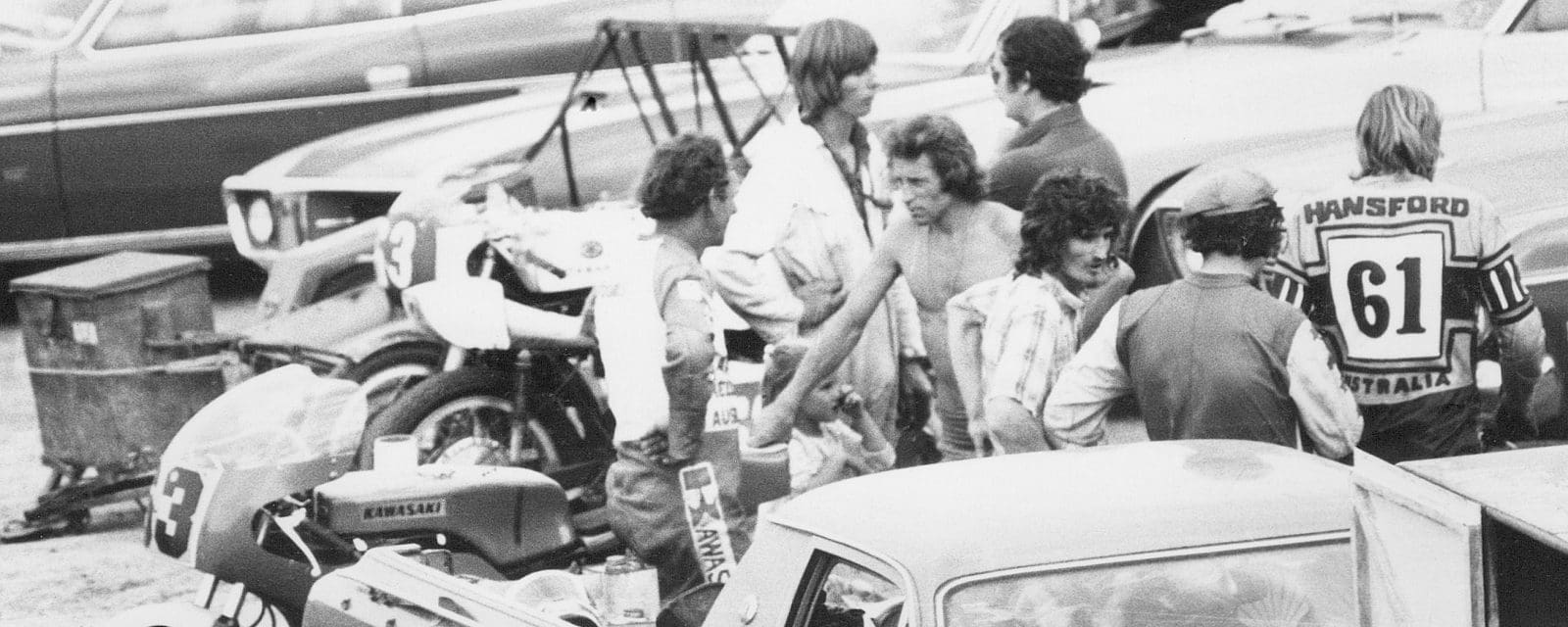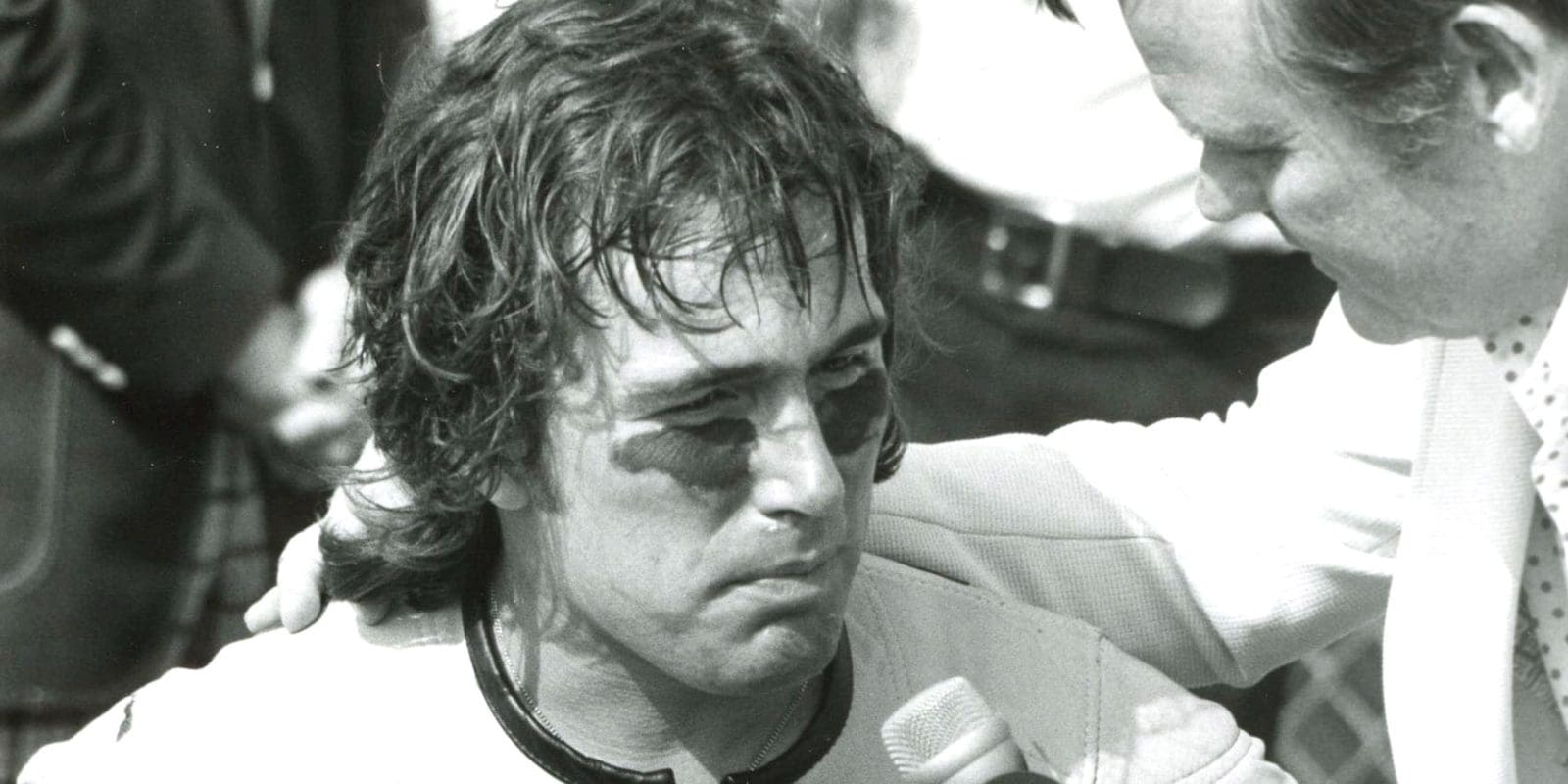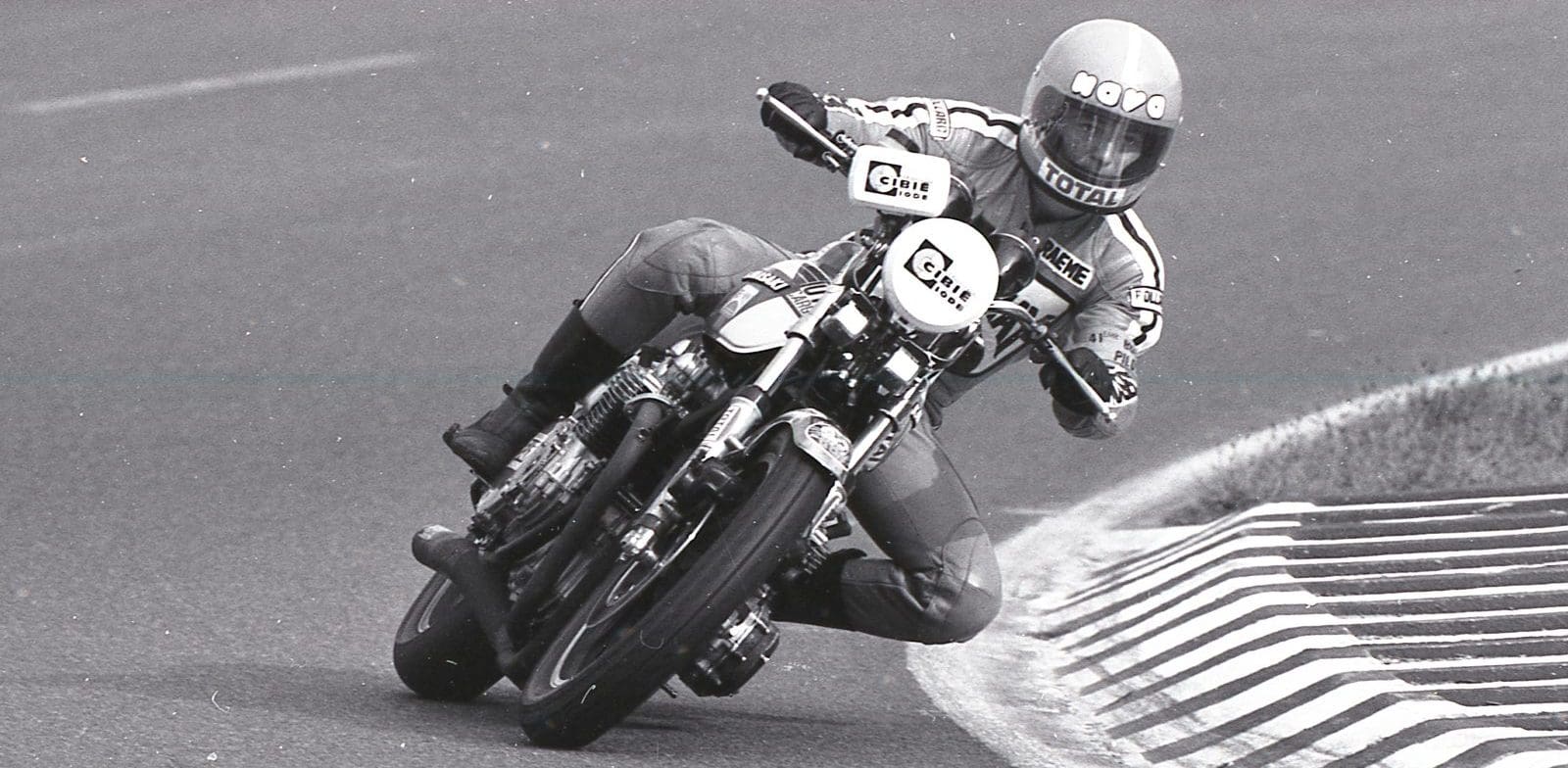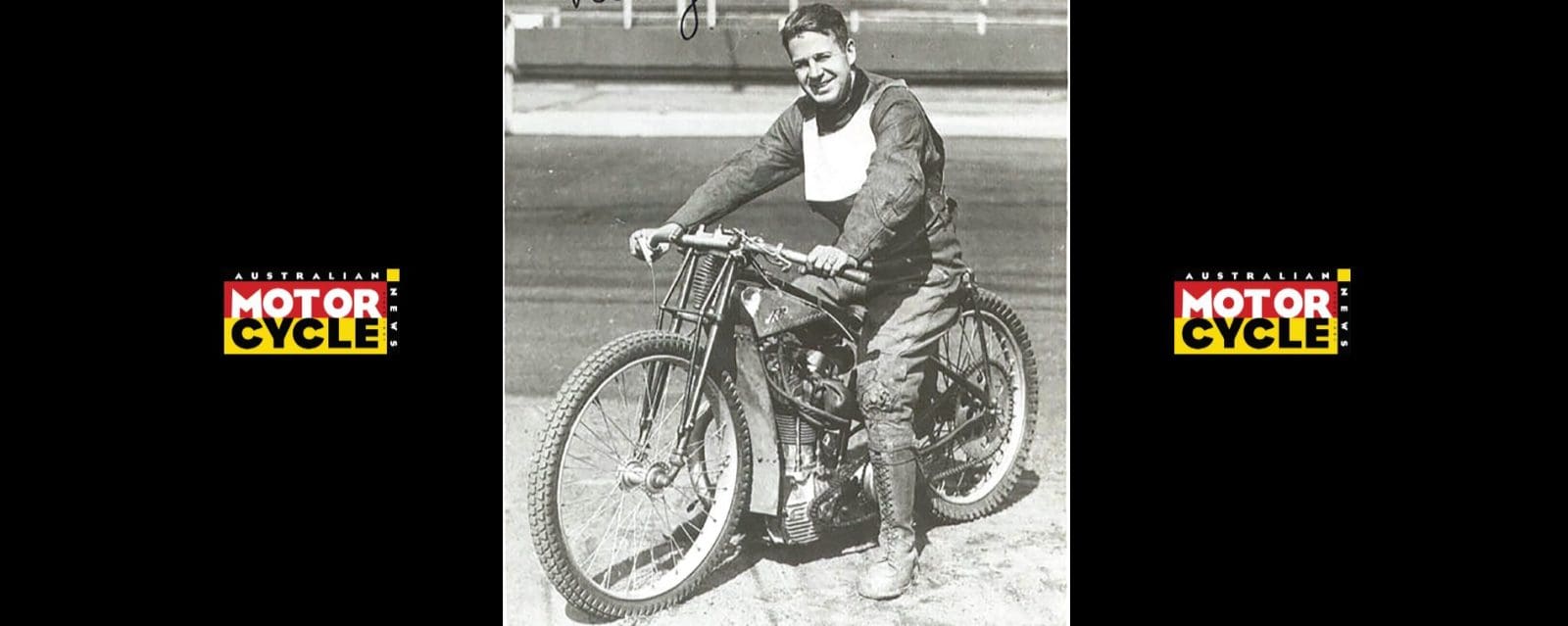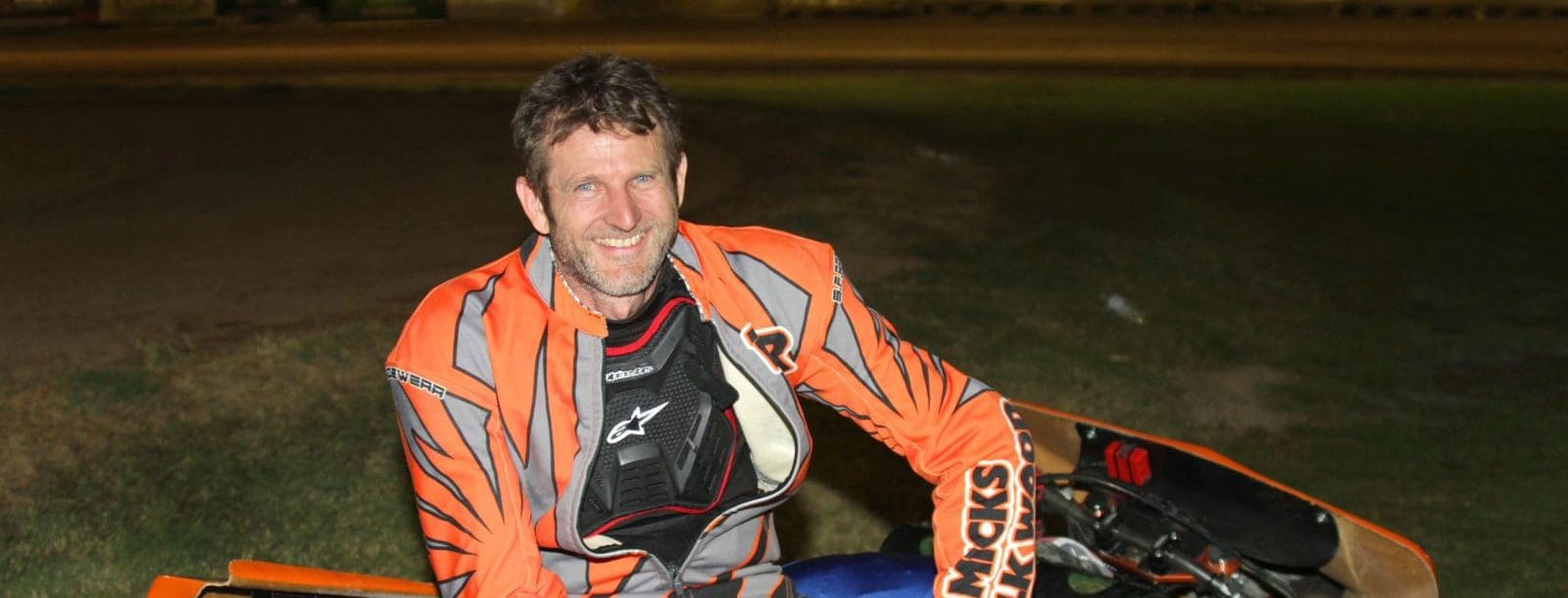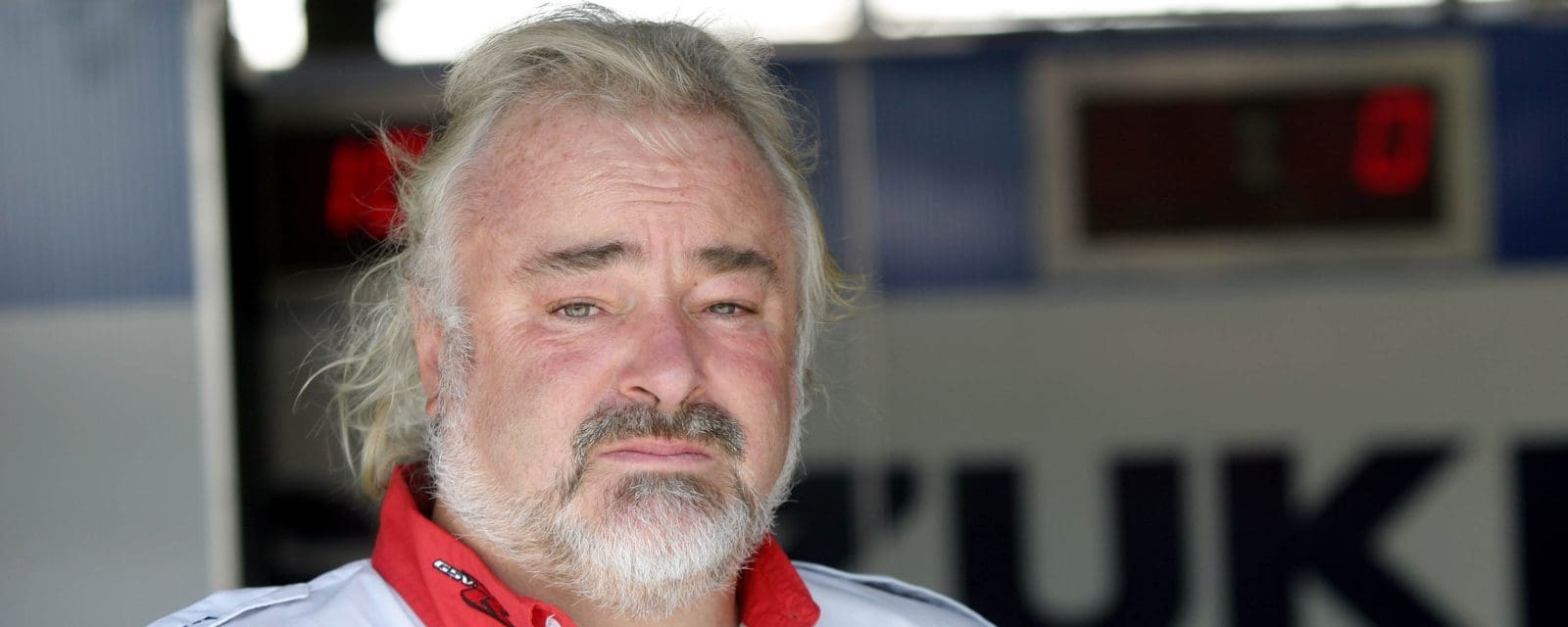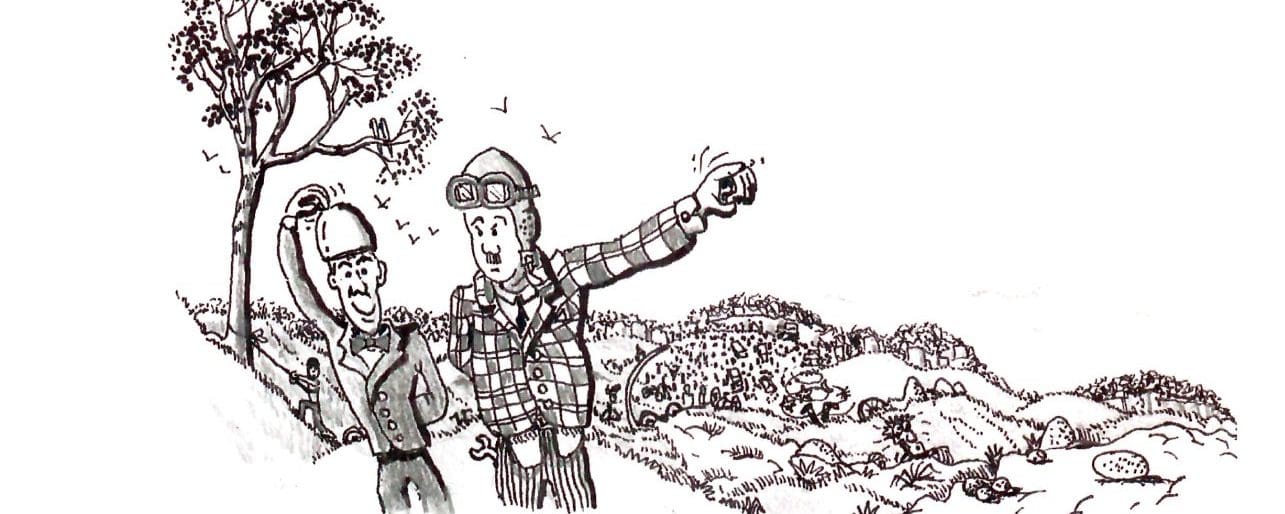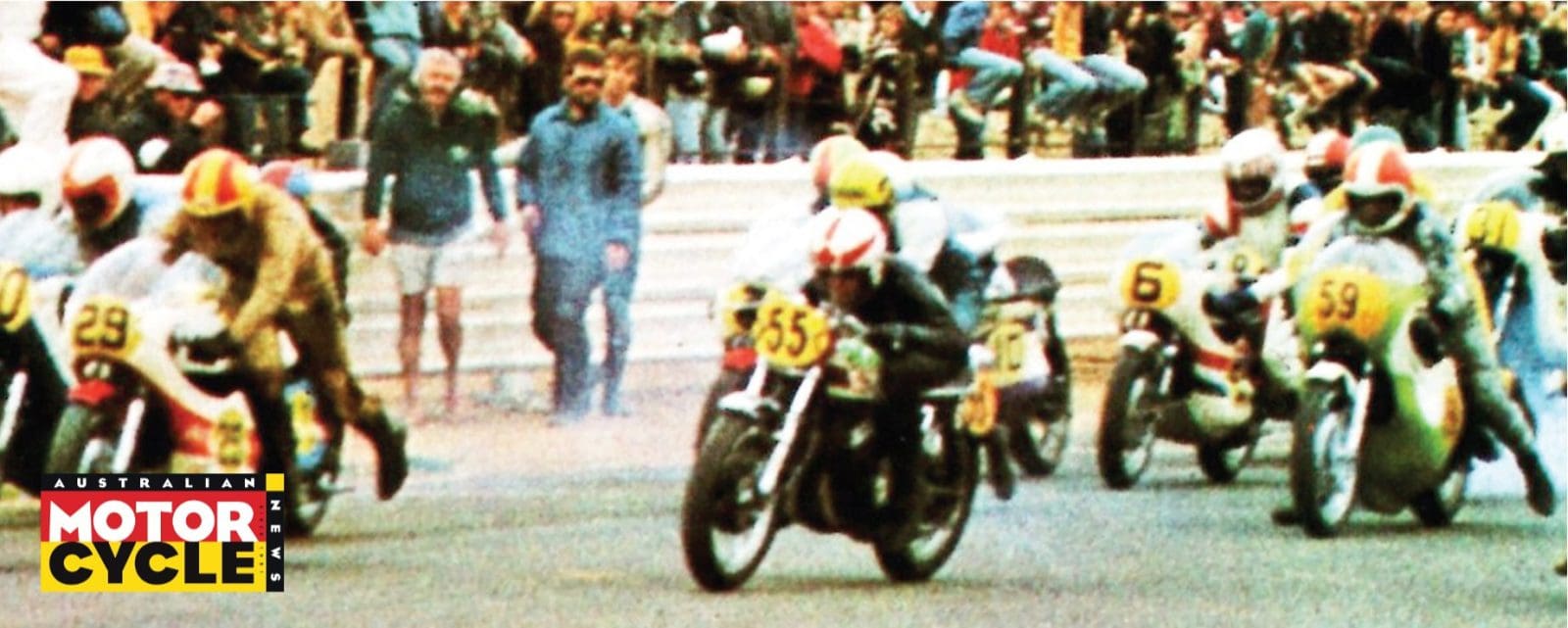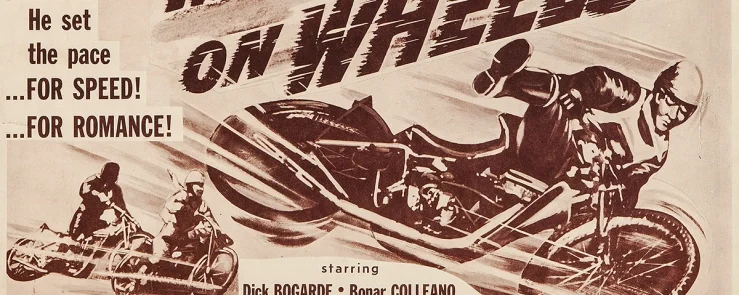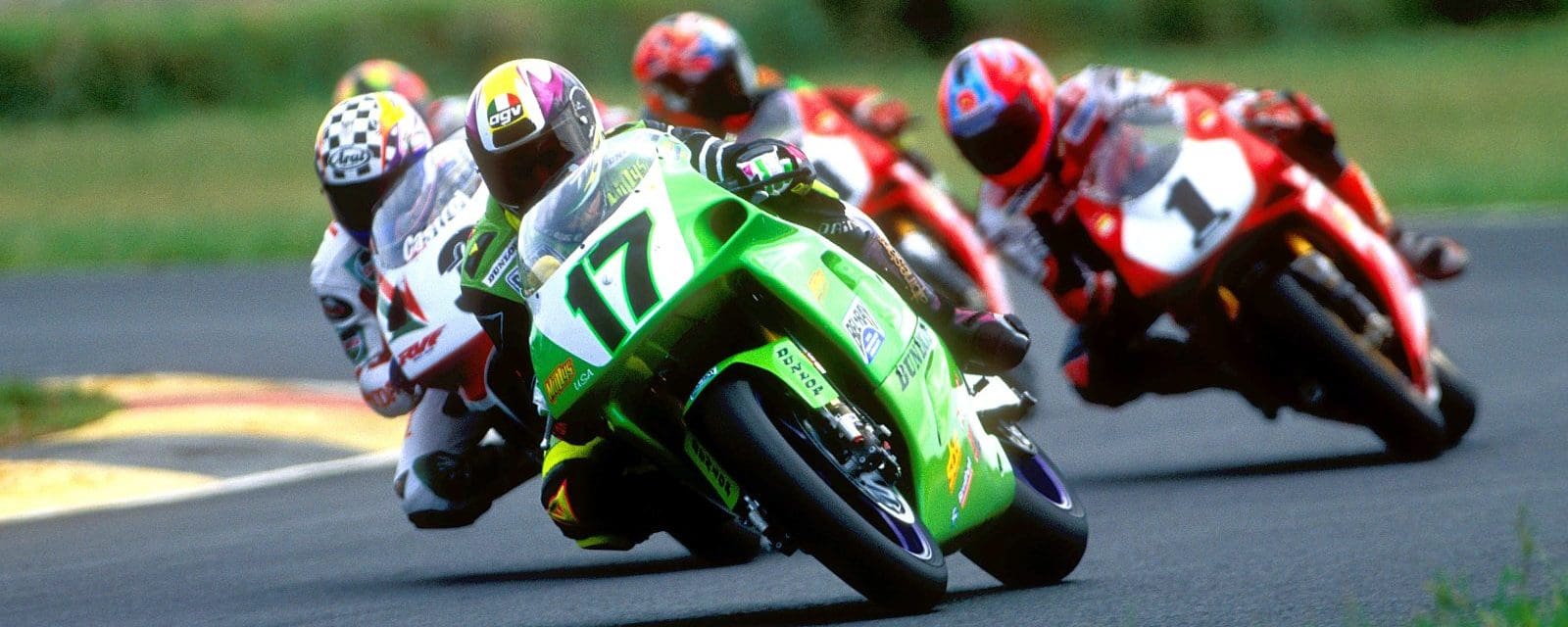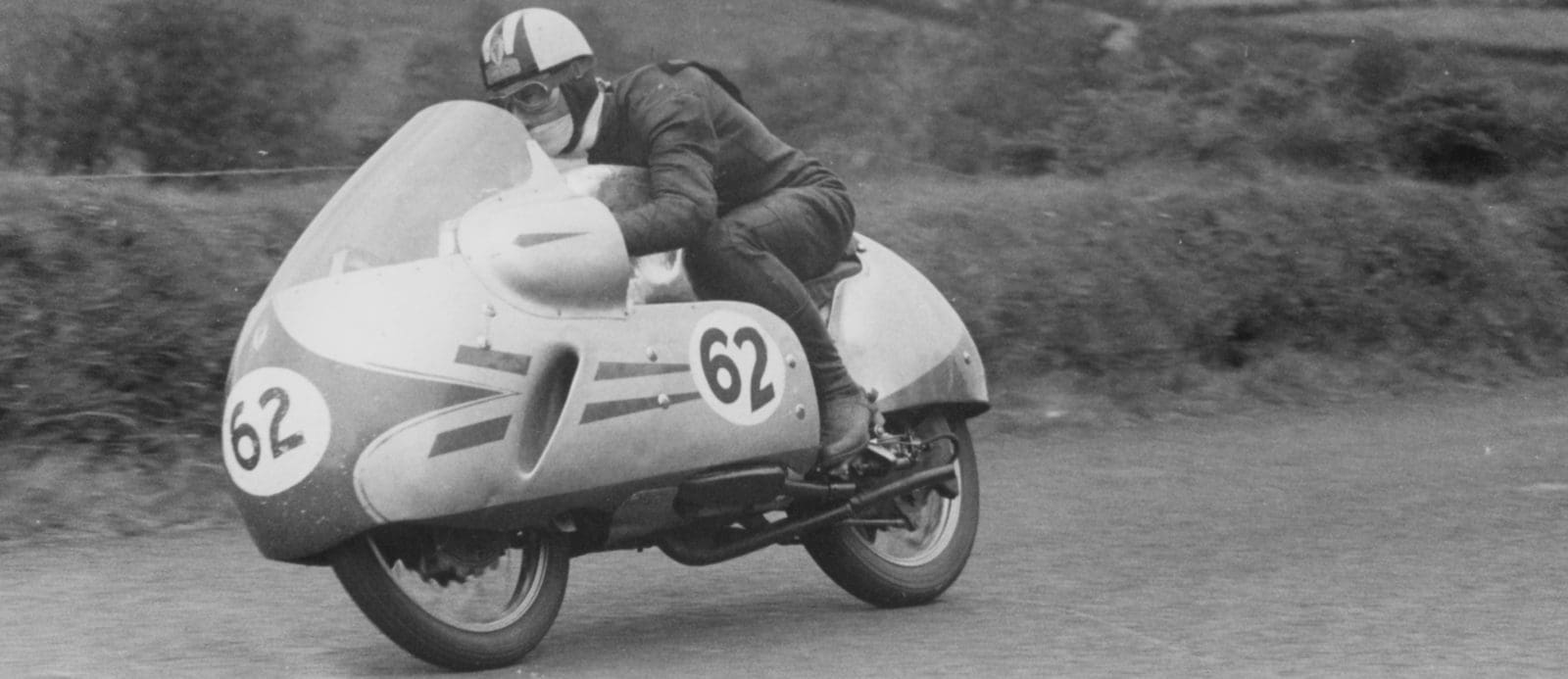When the inaugural Wynn’s Sydney to Darwin Safari was announced in 1985, the aspirants included 67 two-wheel enthusiasts, few of whom had any idea of what lay ahead. The Finke Desert Race was still very much a local derby for boundary riders and ringers; and the BP Sunraysia Desert Rally was, by comparison, a sprint compared to the proposed 7000km marathon across the most desolate, uninhabited continent on the planet.
A speedy rugby league centre, Wayne earned the moniker ‘Flash’ as a schoolboy when his team won a regional premiership. It stuck throughout his apprenticeship and his first business foray in his home town of Dubbo, where he built Flash Farley Electrical into a substantial business.
By this time, a Yamaha DT250 and local enduros had replaced football. And fanging across the vast outback, culling feral pigs and kangaroos, offered far more excitement than the confines of a football oval. Yet in signing on for that first Wynn’s Safari, 23-year-old Flash soon learnt that speed was not the major factor in cross-country rallying, where simply following the often indecipherable instructions from the pre-dawn starts until well past sunset proved more a matter of stamina than speed. Yet with perspiration and perseverance, Flash became one of only eight motorcycles to reach Darwin in the allotted time.
Very few of those ‘originals’ turned up for an encore in 1986, but Flash found himself addicted to the challenge of the outback, as well as the camaraderie of the overnight bivouacs. By 1987 he was one of only two riders – Bathurst’s AJ Cunynghame being the other – feted at the Safari Heroes Breakfast held in Darwin to honour those competitors who had completed the first three Wynn’s Safaris.
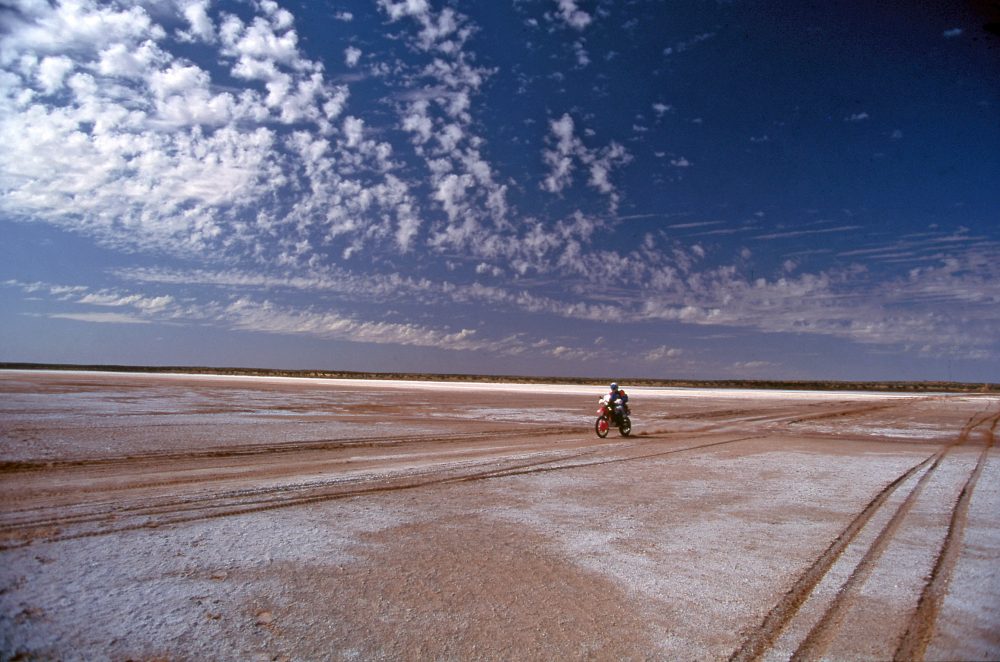
Little wonder then that Flash rolled up to the start of the 1988 Bi-Centennial Safari; a 15-day, 9000km epic from Alice Springs to Darwin then back south to Sydney. With only four days remaining, AJ Cunynghame trashed his Motor Guzzi near Windorah and was medivacced to hospital. Flash was now the only rider who’d finished all three previous Safari’s and naturally he was keen to make it four in a row. But his ailing Kawasaki KLR650 wouldn’t cooperate and was towed almost five kilometres before it responded to Flash’s superior will. Trailing a thick plume of smoke all the way to Sydney, the Kawasaki consumed over 30 litres of oil during the final two days.
Having beaten the odds, Flash quit the Safari Circus with all limbs still attached but the wanderlust remained.
“It was the massive Nyngan-Charleville floods in 1990 which prompted the ride around Australia to raise money for the flood victims,” says Flash. “With Apex Australia backing me, arranging local media interviews and accommodation; and Telstra providing a mobile phone – a rarity in those days – it was a real adventure.”
And a huge effort, the longest day being the 1731km between Darwin and Derby, however Flash raised almost $40,000 and received a hero’s welcome when he returned to Dubbo. And it was in Dubbo that Flash was one of the instigators of Destination Outback, a biannual rally organised by the Rotary Club of South Dubbo. Flash initially rode his refettled Kwakka – 40 litre tank and all – but since has moved to the comfort of a 4WD; having completed all events bar one and helping raise more than $2 million, mostly to aid the Royal Flying Doctor Service.
Now married to Sandra, living on Bribie Island and managing a self-storage business, Flash continues to participate in the Destination Outback rally.
“Just this year alone we raised over $200,000 some of which went to the Farm Aid appeal,” he said. “Places such as Cunnamulla, Longreach, Tambo, Nindigully and Armatree may not be as wild as the Simpson Desert; and the air conditioned comfort of a Ford Ranger is far easier on the butt than a Kawasaki KLR, but the wide open spaces of Australia’s outback and the camaraderie of like-minded adventurers is just as invigorating as those early Safaris.”
By Peter Whitaker
Photos Crocodile Press
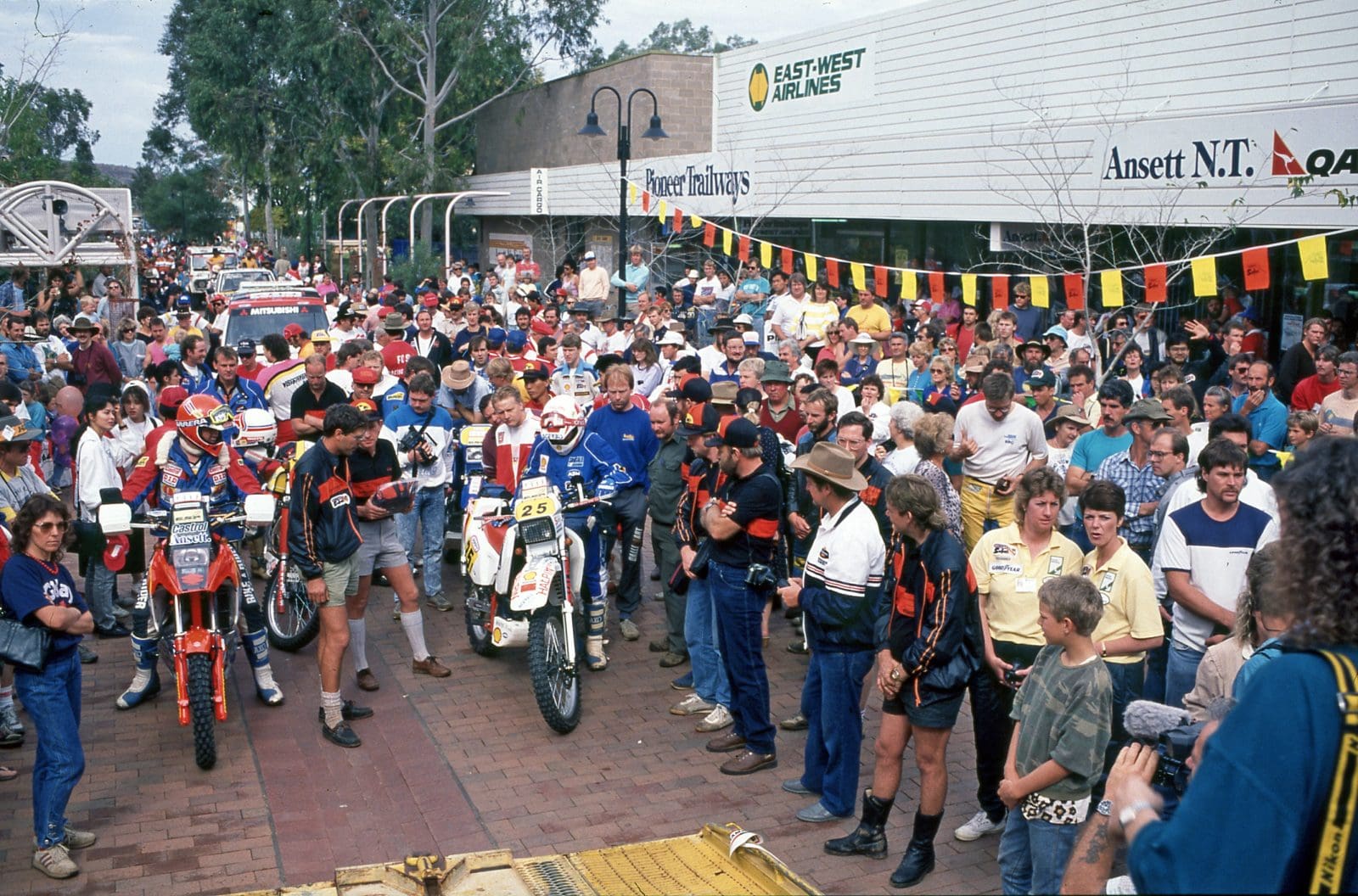
- Everyone in Alice turned out for the start of the Bi-Centennial Safari.
